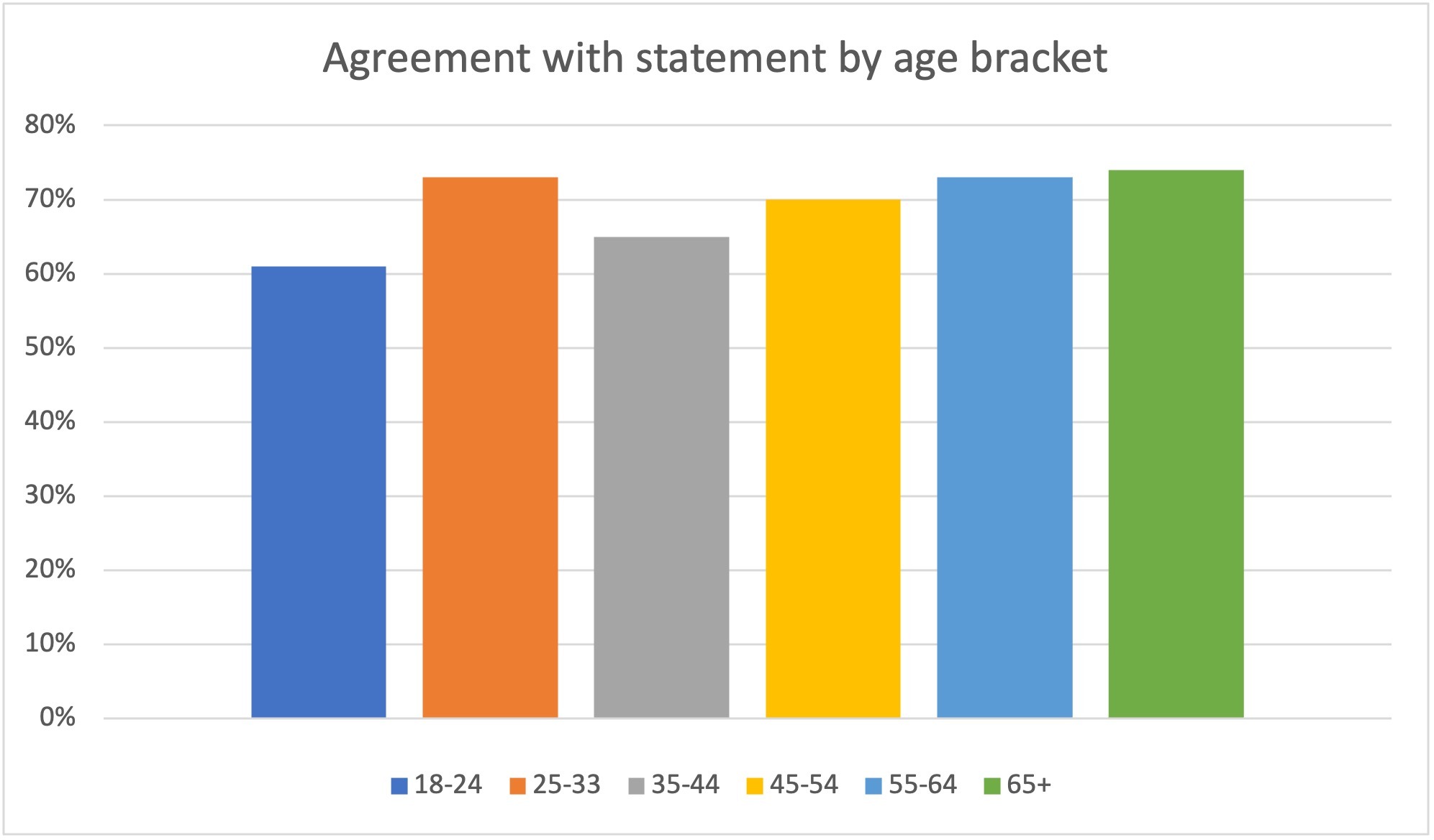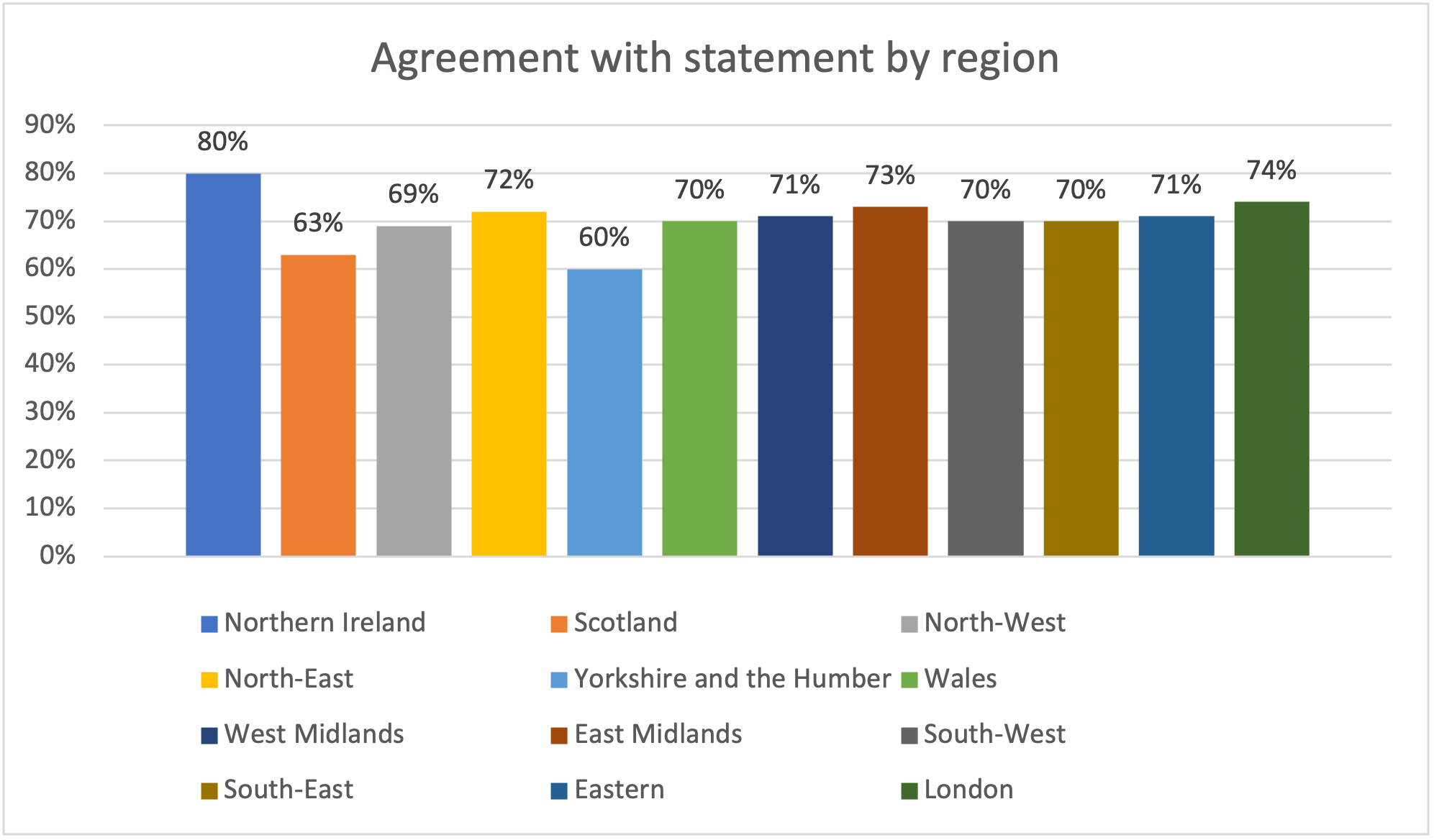
- Seven in ten of the British public say children significantly benefit from one-on-one tutoring.
- Regional variations see greatest enthusiasts for private tuition in Northern Ireland, contrasting with lower support in Yorkshire and Humberside.
- This gives the lie to negative attitudes to tutoring.
- However, issues of affordability and quality remain.
No Nonsense National Survey Programme 2024-25 assessed levels of agreement to the following statement:
‘Most schoolchildren significantly benefit from individualised tuition over and above classroom teaching.’
Methodology:
- 2000+ respondents
- National representation
- Year: 2024
NATIONAL FINDINGS
70% of respondents agreed or strongly agreed that most schoolchildren significantly benefit from individualised tuition over and above classroom teaching.
Individualised, one-to-one tuition helps students develop essential study and time management skills that they might not learn in a traditional classroom setting. [1]
These skills can help students become more organised and determined to achieve their academic goals. [2]
Aside from the benefits of investing in tuition, this might explain why parents of children at state school (who have the means) hire a private tutor as they feel that the state system is not resourced to fully provide for their child.
AGE GROUP VARIATIONS
The highest level of agreement from respondents was in the 65+ age bracket, at 74%.
In older generations, individualised, one-to-one tutoring is often seen as a return to a more traditional (and effective) approach that has worked well in the past, especially when class sizes were a lot smaller and teachers were able to focus on their students in a more direct, one-to-one manner.
Therefore, these figures from respondents in this age bracket might be somewhat rooted in nostalgia. [3]

The lowest level of agreement from respondents was in the 18-24-year-old age bracket, at 61%.
This is understandable for many reasons, particularly because this age group are typically very socially aware and might view private tutoring as something only available to those who can afford it and therefore inequitable. [4]
Most children in the UK do not receive private tuition and more fundamentally are not able to access it, as it is often expensive and financially inaccessible for most families. [5]
Therefore, 18-24-year-olds relatively fresh out of secondary school, most of whom have never had the means to receive private tuition, might be less inclined to agree that most schoolchildren significantly benefit from individualised tuition over and above classroom teaching.
REGIONAL VARIATIONS
The highest level of agreement was from respondents in Northern Ireland at 82%.
This might be influenced by the selective education system in Northern Ireland, whereby primary school students take the 11+ ‘Transfer Test’, to determine which school they will attend between the ages of 11-18, and subsequently, the quality of secondary education they will receive. [6]
As these tests are essential for securing their children grammar school education and achieving long term academic success, parents might be more likely to perceive one-to-one tutoring as essential for their children’s academic success. [7]

On the other end of the spectrum the level of agreement from respondents was as low as 60% in Yorkshire & the Humber.
Yorkshire has a long and proud history of supporting state education, with emphasis placed on equal opportunity for all students regardless of their background in the comprehensive system. [8]
Therefore, respondents in this region might see less of a need for individualised tuition over and above classroom teaching.
References:
[4] Diane Reay – Miseducation: Inequality, education and the working classes (Bristol University Press) https://www.stor.org/stable/j.ctt22p7k7m
[5] Sutton Trust. (2019). Private Tuition and Social Mobility Report 2019 (Sutton Trust)
[8] Stephen Gorard & Beng Huat See – Overcoming disadvantage in Education (Durham University)
